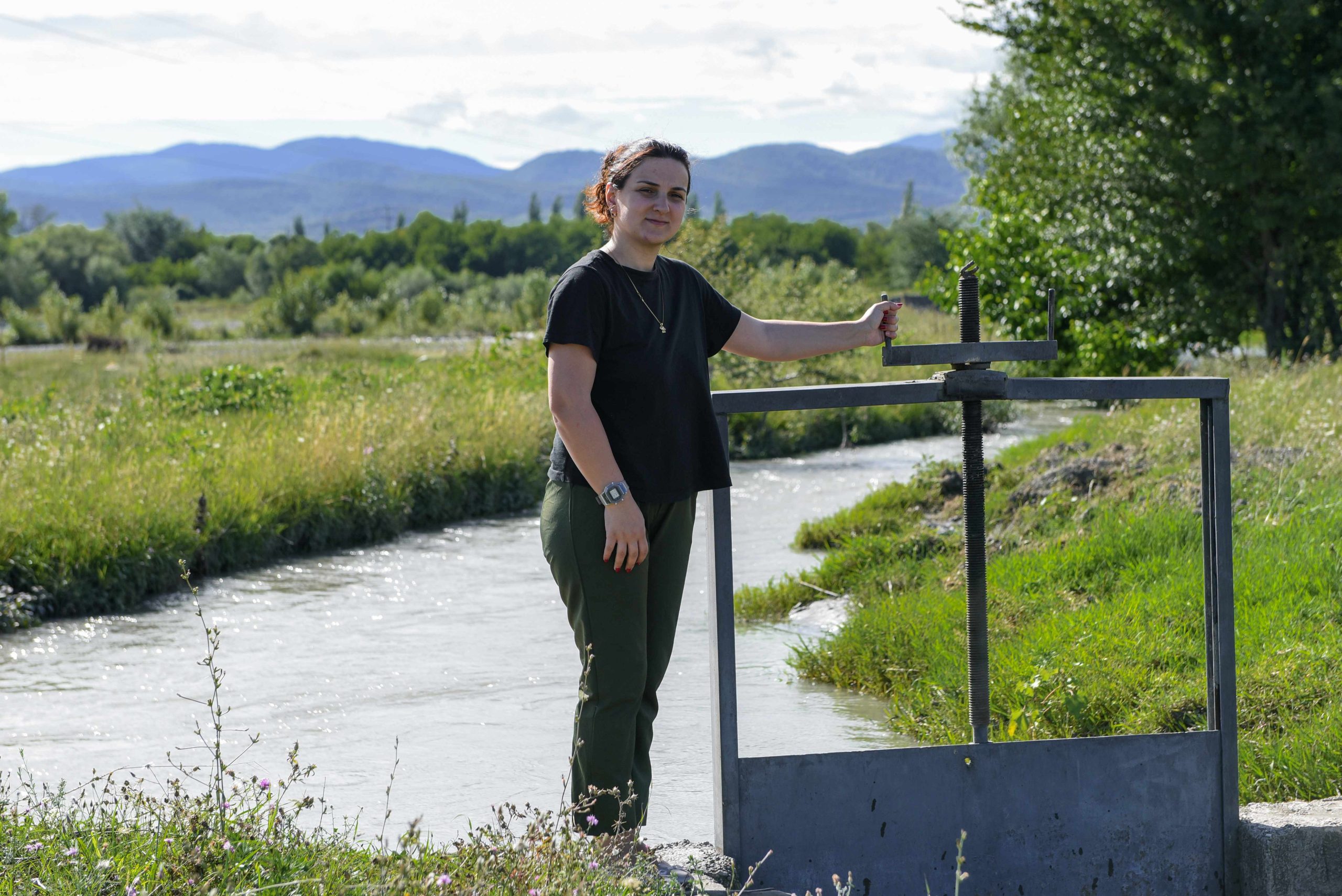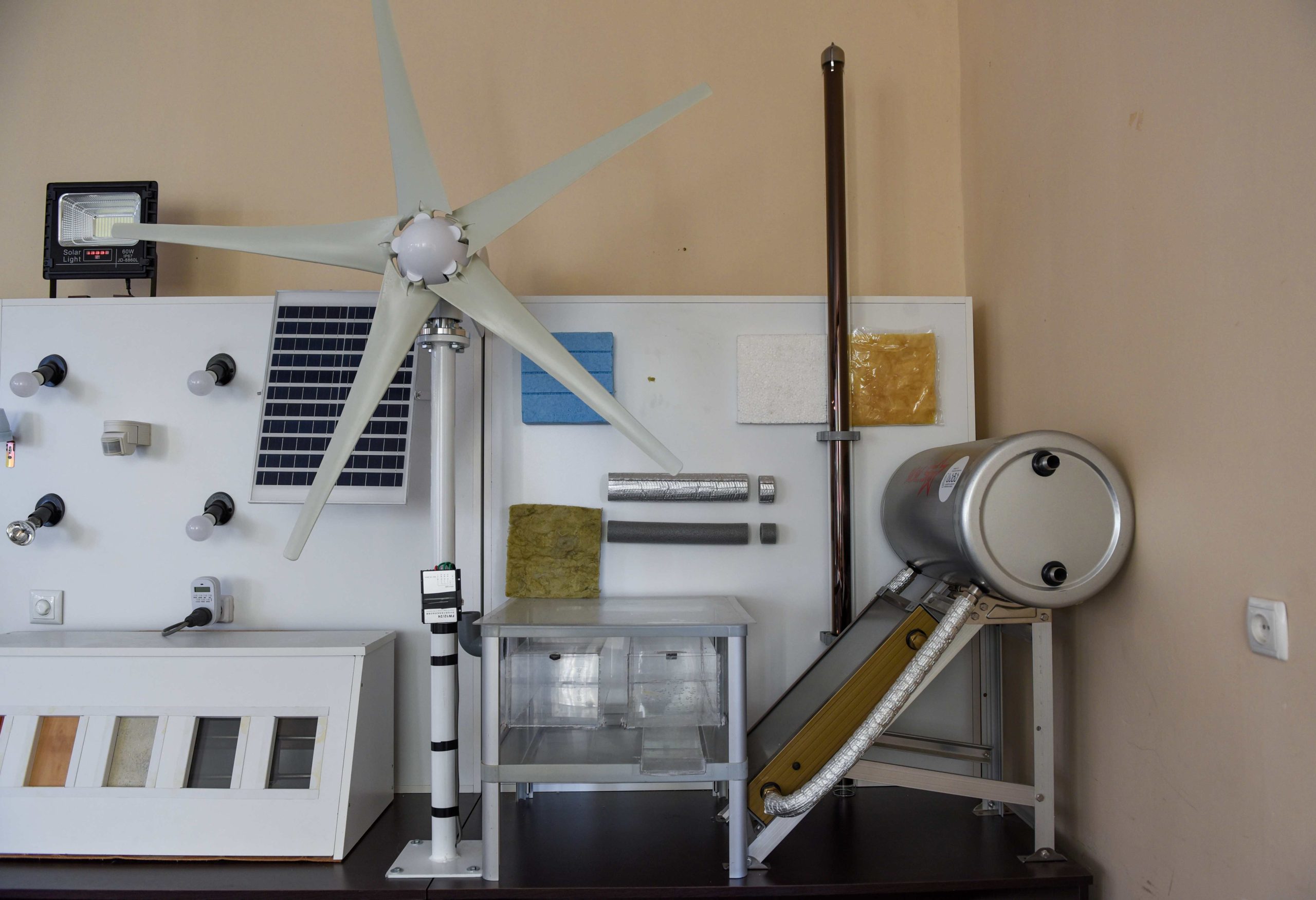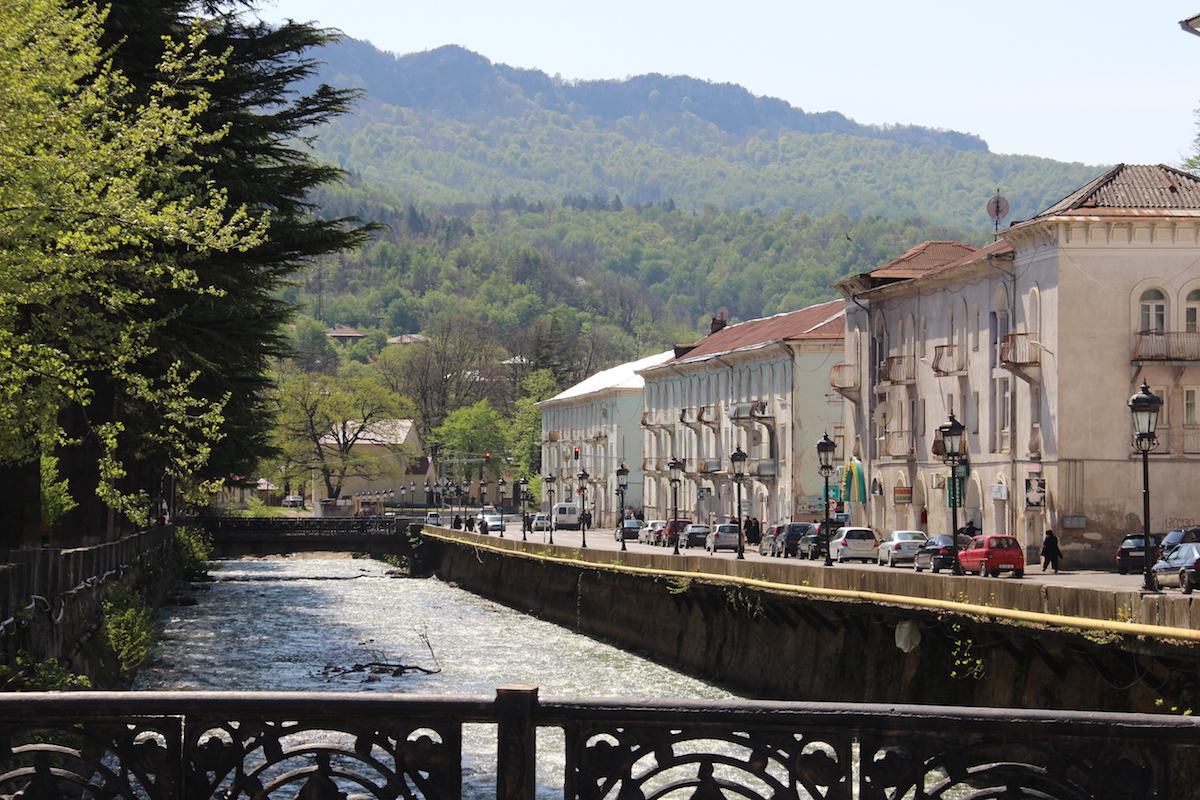Solar panels in kindergarten: Project under Georgia's EU-backed 'Climate Program'
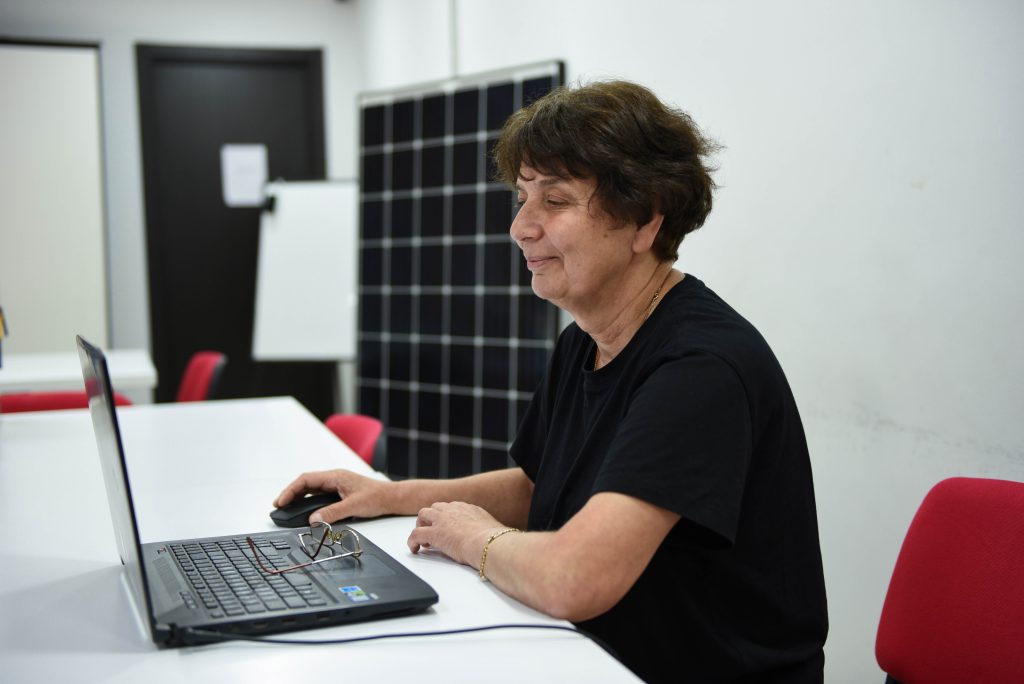
The kindergarten in the village of Kasristskali in eastern Georgia is powered by solar panels for its building’s lighting needs. Thanks to this, the kindergarten saved 3,600 kilowatts of electricity in 2023, reducing its annual expenses by 1,200 lari (approximately $427).
On February 21, 2017, the Georgian government ratified the Paris Agreement, joining nearly 200 countries in their commitment to implementing policies aimed at mitigating the effects of global climate change.
The Paris Agreement is the first universal, legally binding climate accord, with the goal of limiting the increase in global average temperature to 1.5°C.
The introduction of renewable energy sources plays a crucial role in mitigating climate change and transitioning to a green economy. European Union member states have been working in this direction for many years and are assisting other countries in implementing similar initiatives.
It was with the support of the European Union that solar panels were installed at the kindergarten in Kasristskali.
How idea emerged
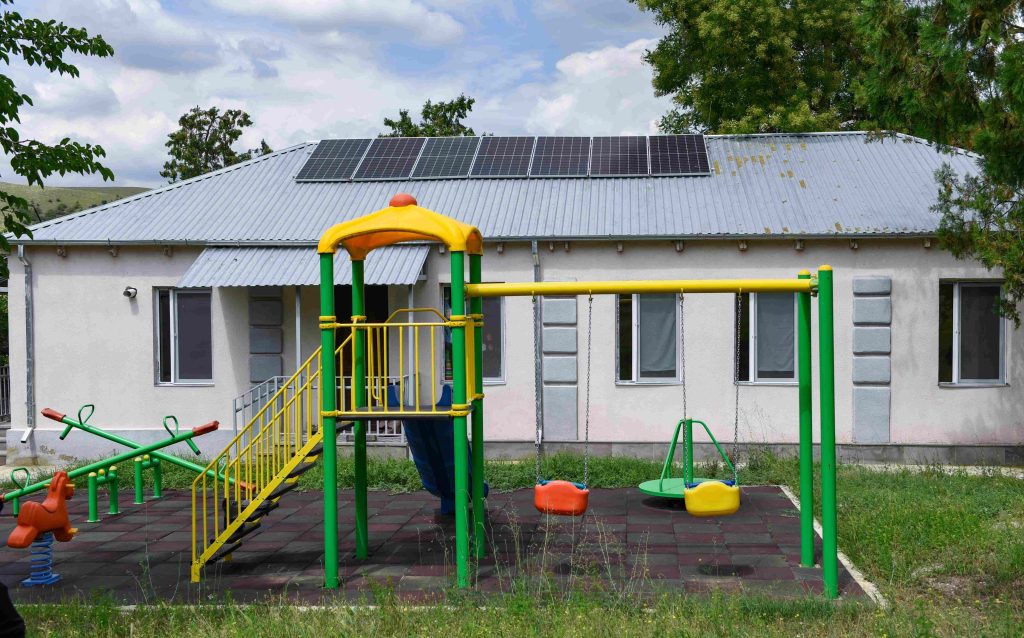
The Caucasus Environmental NGO Network (CENN) is implementing the EU-funded project Georgia’s Climate Program, aimed at mitigating the effects of climate change. This is a four-year program carried out by CENN in collaboration with the Kakheti Regional Development Foundation (KRDF), the Chiatura Union (ACU), the Association for the Development of Agro-Tourism in Racha-Lechkhumi and Kvemo Svaneti (RLS-ADA), and the Union of Young Teachers (YPU).
In 2023, CENN, as part of the “Georgia’s Climate Program,” announced a small grants competition. Winning this competition allowed the non-governmental organization “Kakheti” to install solar panels at the kindergarten in Kasristskali.
“After conducting research, we decided that solar panels should be installed specifically in the village of Kasristskali, which is located about 160 kilometers from the administrative center of Akhmeta Municipality and is considered vulnerable. Moreover, the kindergarten in this village had recently been renovated, and we thought it would be a good choice for the project,” says Shorena Chapurishvili, Deputy Chair of the Board of the “Kakheti” organization.
Thus, starting in autumn 2022, three-kilowatt solar panels were installed at the kindergarten in Kasristskali. Given the limited resources, the decision was made to initially focus on generating electricity for lighting. However, Shorena does not rule out expanding the use of solar energy in the future:
“If additional systems are installed in the building, these panels could be used to heat water and expand the coverage area.”
The project was completed in spring 2023. Since then, the kindergarten has no longer had to pay for electricity.
Trainings
The project aimed not only to promote the use of renewable energy sources but also to raise awareness.
As part of the project, more than twenty training sessions on environmental protection and climate change were held, involving residents not only from Kasristskali but also from neighboring villages.
Shorena adds that the training sessions were also held in other villages to allow more people to attend. The majority of participants were young people.
“It wasn’t difficult to engage the youth. Educating the older generation was more challenging. The kindergarten staff also helped us,” she recalls.
The training sessions, covering topics such as climate change issues, disaster risk reduction, renewable energy sources, and their applications, were conducted by invited specialists.
Shorena mentions that after these sessions, some participants started implementing their own small projects. One of them was Tamar Asatashvili.
At that time, Tamar was an 11th-grade student who traveled from the neighboring village of Matani to attend the training sessions. She had already been interested in such topics, so when she heard about the project, she eagerly got involved:
“The training sessions were very interesting and practical. We tried everything ourselves and answered many important questions. For instance, why has winter in our village stopped resembling winter? Why hasn’t there been proper snow for so many years, even though this area is considered mountainous?”
After participating in the training sessions, Tamar and her friends began educating their peers. They also initiated other projects:
“We worked on several projects. For example, we installed a solar-powered bell in the school. Now, every day when the bell rings, instead of using regular electricity, it runs on renewable energy.
We also acquired small educational robots powered by solar energy, which helped engage and interest children in this issue.”
Tamar says that young people are interested in such topics. They are trying to launch various startup projects related to environmental protection and climate change.
Currently, Tamar is a first-year university student studying computer engineering, but she doesn’t rule out delving into renewable energy studies alongside her main field.
As for the kindergarten in Kasristskali, after the solar panels were installed, the municipality took over the maintenance of the project, following detailed recommendations from its creators on system upkeep.
Shorena Chapurishvili says this project inspired her and her colleagues to plan more similar initiatives and to focus more on implementing renewable energy sources in the region.
The article was written as part of the “Georgia Climate Action Project,” funded by the European Union and implemented by CENN in collaboration with the Kakheti Regional Development Foundation (KRDF), the Chiatura Union (ACU), the Racha-Lechkhumi and Lower Svaneti Agrotourism Development Association (RLS-ADA), and the Youth Pedagogues Union (YPU). The project’s aim is to strengthen civil society and promote human rights and fundamental freedoms in four target regions of Georgia—Guria, Imereti, Kakheti, and Racha-Lechkhumi and Lower Svaneti—with a focus on the right to access water and a healthy environment.










